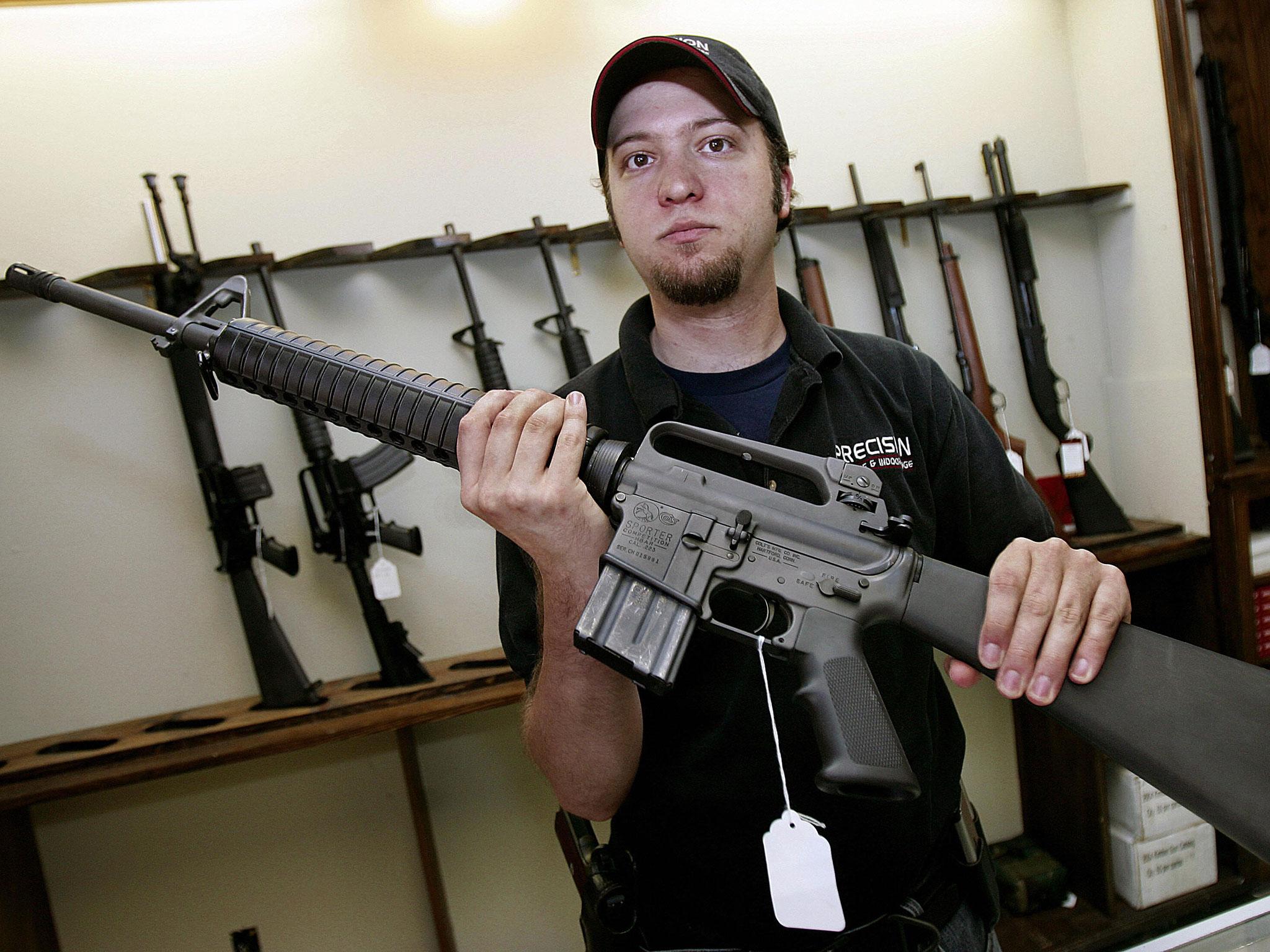Treating gunshot wounds in US hospitals costs $2.8bn a year, study finds
'Policymakers might consider implementing universal background checks for firearm purchases and limiting access to firearms for people with a history of violence or previous convictions'

Your support helps us to tell the story
From reproductive rights to climate change to Big Tech, The Independent is on the ground when the story is developing. Whether it's investigating the financials of Elon Musk's pro-Trump PAC or producing our latest documentary, 'The A Word', which shines a light on the American women fighting for reproductive rights, we know how important it is to parse out the facts from the messaging.
At such a critical moment in US history, we need reporters on the ground. Your donation allows us to keep sending journalists to speak to both sides of the story.
The Independent is trusted by Americans across the entire political spectrum. And unlike many other quality news outlets, we choose not to lock Americans out of our reporting and analysis with paywalls. We believe quality journalism should be available to everyone, paid for by those who can afford it.
Your support makes all the difference.Treating people for gunshot wounds in American hospitals costs about $2.8bn every year, according to new research.
Nearly 705,000 people arrived alive at US emergency departments in the nine years to 2014 with 37 per cent later admitted as an inpatient, the study found. More than eight per cent died while in the hospital.
A paper about the study was published just hours after more than 50 people were killed by a lone shooter, who is thought to have then killed himself, in Las Vegas.
Treatment in the emergency room cost an average of $5,254 while inpatient charges averaged £95,887.
However, more than half of the injured did not have health insurance so either covered the cost personally or failed to pay the bill.
Writing in the journal Health Affairs, the researchers said: “Firearm-related injuries for our study population resulted in an estimated financial burden of approximately $25bn in emergency department and hospital charges over the study period.
“Despite the high clinical and financial burden associated with firearm-related injuries, resources allocated to preventing them remain low.
“Future policies related to firearms should focus on better understanding and preventing these injuries.”
They bluntly suggested it was time for greater controls on the sale of guns.
“Although future research is warranted to better understand firearm-related injuries, policymakers might consider implementing universal background checks for firearm purchases and limiting access to firearms for people with a history of violence or previous convictions to reduce the clinical and financial burden associated with these injuries,” they wrote.
In 2015, 12,979 people were killed in gun-related homicides and 22,018 took their own lives with a gun.
The researchers used details about more than 150,000 patients with gunshot wounds between 2006 and 2014 as a representative sample of the total.
The overall incidence of emergency admissions for firearm-related injuries decreased from 27.9 visits per 100,000 of population in 2006 to 21.5 per 100,000 in 2013, representing a 22.9 per cent decline, they found.
The rate for men was 45.8 visits per 100,000 compared to 5.5 per 100,000 for women. The rate for men aged 20 to 24 was 152.8 per 100,000.
Nearly half of the patients, 49.5 per cent, were the victims of an attack, while 35.3 per cent had been injured unintentionally. Attempted suicide accounted for 5.3 per cent.
The researchers said their cost figure was likely to be an underestimate for the total healthcare bill, because of “post-discharge physical therapy, trauma counselling, in-home care, and lost income”.
It has previously been estimated that gun fatalities and injuries cost the US economy a total of $174bn a year in lost work, healthcare costs, criminal justice claims, and reduced quality of life.
One of the researchers, Dr Faiz Gani, of the Johns Hopkins Surgery Centre for Outcomes Research, said: “Much of the existing literature on firearm-related injuries focuses on pre-hospital statistics with limited data evaluating contemporary estimates for firearm-related injuries.
“Until people are aware of the problem's full extent, we can’t have the best-informed discussions to guide policy.”
Join our commenting forum
Join thought-provoking conversations, follow other Independent readers and see their replies
Comments